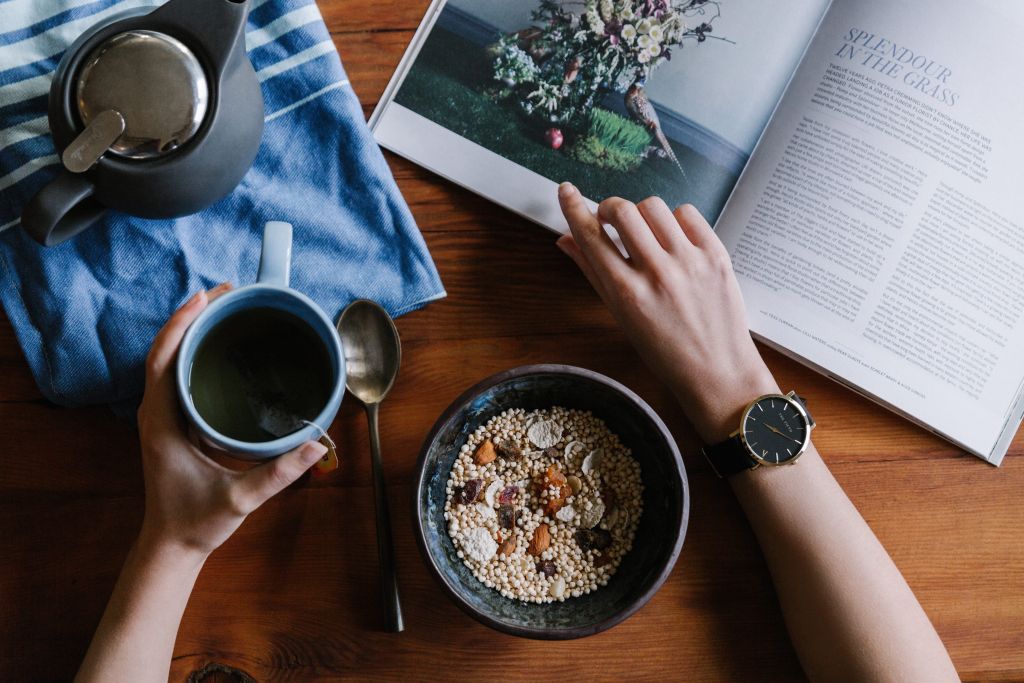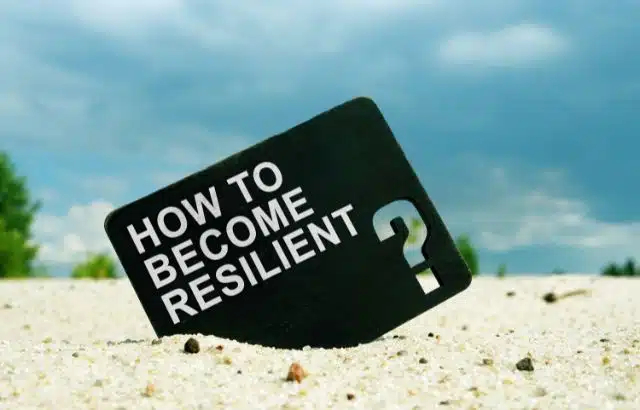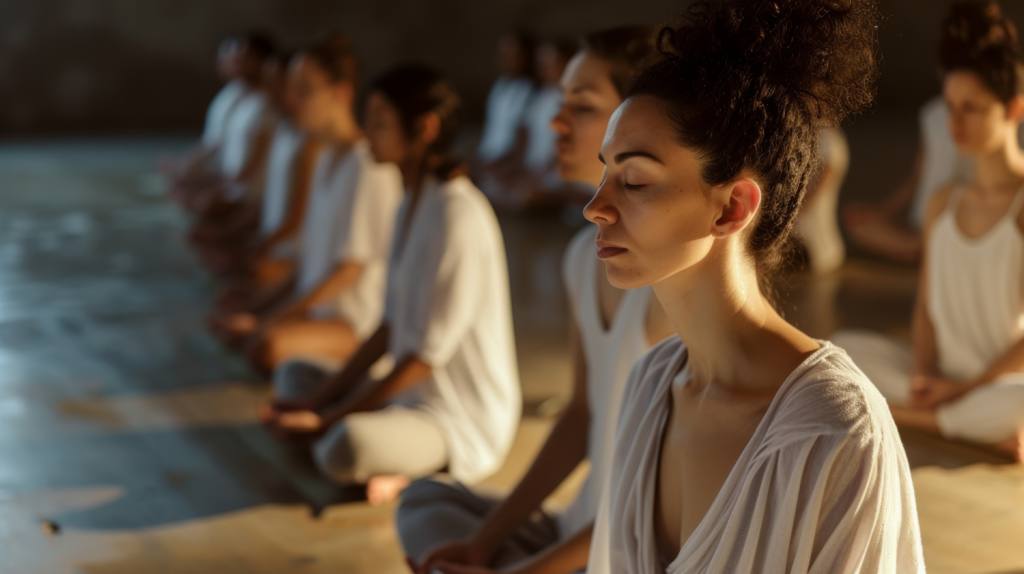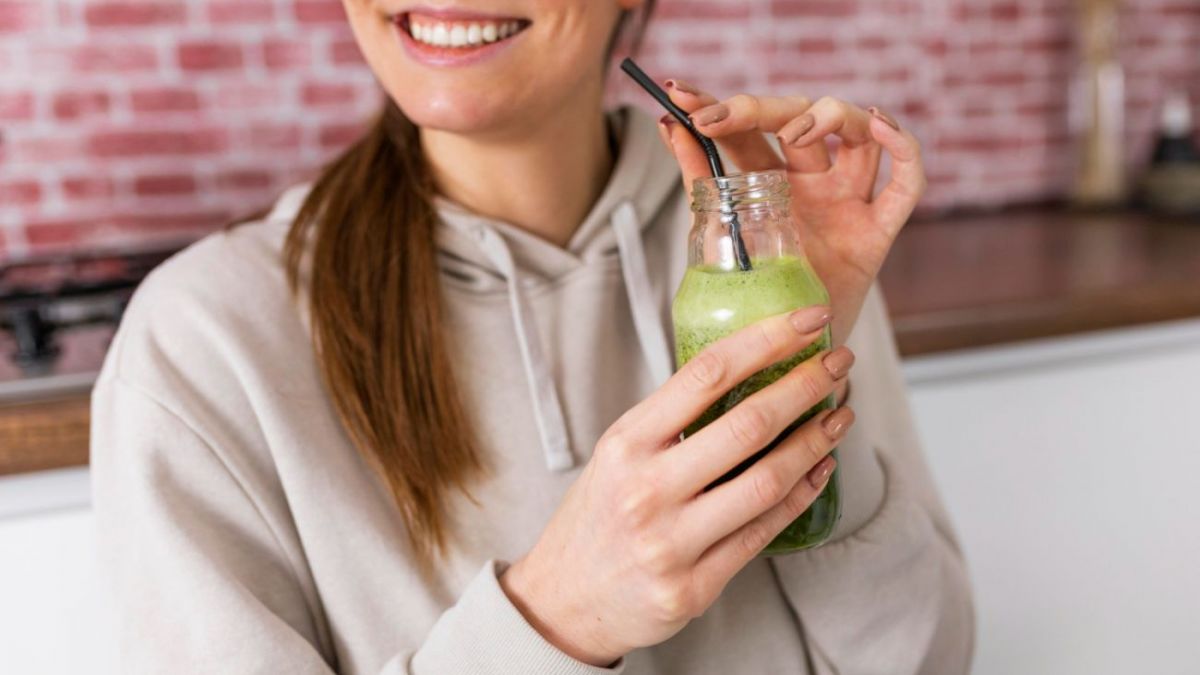Mental Health
10 Morning Routines to Kickstart Your Day with Energy

Waking up with energy and setting a positive tone for the day begins with establishing effective morning routines. How you start your morning can significantly impact your mood, productivity, and overall well-being throughout the day. Here are ten morning routines designed to help you kickstart your day with energy:
1. Early Wake-Up Time
Set your alarm for an early wake-up time to allow yourself ample time before the rush of the day begins. Waking up early gives you a quiet moment to yourself, which can be invaluable for mental clarity and setting intentions for the day ahead.
2. Hydration Ritual
Begin your morning by hydrating your body. After hours of sleep, your body needs hydration to kickstart metabolism and replenish fluids lost during the night. Drinking a glass of water or warm lemon water helps jumpstart digestion and gives you an immediate energy boost.
3. Mindfulness and Meditation
Take a few moments for mindfulness or meditation. This practice helps center your mind, reduce stress, and increase focus. Even a short session of deep breathing exercises can set a positive tone for the day ahead.
4. Exercise Routine
Incorporate exercise into your morning routine to get your blood flowing and boost endorphins. Whether it’s a brisk walk, yoga session, or a full workout, physical activity in the morning energizes your body and mind, preparing you for the day ahead.

5. Healthy Breakfast
Fuel your body with a nutritious breakfast. Include protein, healthy fats, and complex carbohydrates to sustain energy levels throughout the morning. A balanced breakfast can improve concentration and prevent mid-morning energy crashes.
6. Goal Setting
Set daily goals and intentions. Take a moment to visualize your day and prioritize tasks. Setting clear goals helps you stay focused, motivated, and organized, ensuring a productive day.
7. Positive Affirmations
Practice positive affirmations to cultivate a positive mindset. Affirmations such as “I am capable,” “I am focused,” or “I am grateful” can boost confidence and enhance your overall outlook on the day ahead.
8. Reading or Learning
Dedicate time to read or engage in learning activities. Whether it’s reading a book, listening to a podcast, or learning something new, stimulating your mind early in the morning enhances cognitive function and creativity.
9. Daily Journaling
Journaling allows you to reflect on your thoughts and emotions. Spend a few minutes writing down your thoughts, gratitude, or goals for the day. Journaling promotes self-awareness and clarity, setting a positive tone for the day.
10. Mindful Preparation
Prepare for the day ahead mindfully. Organize your belongings, plan your schedule, and anticipate any challenges or tasks. Being prepared reduces stress and sets the stage for a smooth and productive day.
In conclusion, starting your day with energy and positivity begins with intentional morning routines. By incorporating these ten practices into your morning routine, you can enhance your overall well-being, increase productivity, and approach each day with renewed vigor. Remember, creating a consistent morning routine that works for you is key to setting a positive tone and achieving your goals throughout the day.
Mental Health
How to Build Resilience and Overcome Life’s Challenges

Life is full of unexpected twists and turns, and facing challenges that can sometimes feel overwhelming. Whether it’s navigating personal struggles, work pressures, or unforeseen setbacks, we all go through moments that test our strength. But here’s the good news: resilience, the ability to bounce back, is not something you’re born with—it’s a skill you can build and strengthen over time. One powerful and enjoyable way to support that process is by exploring hobbies that reduce stress, which can boost your mental health while helping you cope with life’s ups and downs.
This post will guide you through practical ways to build resilience, offering tools and insights for managing stress, staying optimistic, and moving forward with confidence. Together, we’ll explore how to face life’s challenges head-on and come out stronger on the other side. No matter your starting point, resilience is within reach!

What Is Resilience and Why Does It Matter?
Resilience is the ability to adapt, recover, and thrive in the face of challenges, setbacks, or adversity. It’s not about avoiding difficult situations but learning how to cope with them in a healthy and constructive way. Think of resilience as a muscle that strengthens the more you use it.
Why does it matter? Because life often presents obstacles, whether they’re personal struggles, work pressures, or unexpected crises. Resilience helps you stay grounded during tough times, enabling you to manage stress, maintain focus, and make better decisions. It’s the foundation that allows you to heal, grow, and even find opportunities in setbacks.
Beyond navigating challenges, building resilience contributes to overall well-being. It fosters emotional strength, cultivates a growth mindset, and boosts self-confidence. Resilient individuals often feel more in control of their lives, which leads to greater happiness and success.
The good news? Resilience isn’t an innate trait; it’s a skill you can build over time through self-awareness, supportive relationships, and consistent practice. By developing resilience, you empower yourself to face life’s challenges with courage and emerge stronger each time.
Practical Steps to Build Resilience in Everyday Life
Strengthening resilience doesn’t require a complete life overhaul; small, consistent actions can make a big difference. Start by setting realistic goals. Break challenges into manageable steps, and celebrate progress, no matter how small. This boosts confidence and helps keep you moving forward.
Prioritize self-care. Sleep, exercise, and proper nutrition are the foundation of emotional and mental well-being. When you take care of your body, your mind becomes more resilient during tough times. Equally important is finding moments of relaxation, whether through meditation, journaling, or simply enjoying a favorite hobby.
Building a support network is another key step. Surround yourself with people who listen, encourage, and uplift you. Share your struggles and lean on trusted friends or family when you need extra support.
Lastly, focus on maintaining a positive outlook. While it’s natural to feel stress or frustration, try to reframe challenges as opportunities to grow. Practice gratitude daily to shift your focus toward what’s going well.
By trying out these practical steps into your daily routine, you can build resilience and face life’s difficulties with greater confidence and strength.
How Stress Management Boosts Your Resilience
Managing stress is a critical component of building resilience. When stress goes unchecked, it can overwhelm your ability to cope, leaving you feeling stuck or drained. Effective stress management, however, helps you stay balanced, think clearly, and make better decisions during difficult times.
One key stress management tool is mindfulness. Practicing mindfulness allows you to focus on the present moment instead of worrying about the past or future. Deep breathing exercises, meditation, or simply pausing to check in with your thoughts can reduce stress levels and improve emotional control.
Time management is another practical strategy. Organizing your day with realistic goals and priorities prevents overwhelm and gives you a sense of accomplishment. Taking charge of your time helps you feel more in control, even when life feels chaotic.
Relaxation techniques like yoga, stretching, or even listening to calming music can also counteract stress. These activities calm your body and mind, helping you recover faster from tension.
By mastering these skills, you’ll handle stress more effectively, which strengthens your resilience and prepares you to face challenges with greater ease and determination.
Conclusion
Resilience is the key to navigating life’s challenges and coming back stronger. By applying the strategies that we shared, like managing stress, focus on positivity, and prioritizing self-care, you can build the inner strength to grow. Remember, resilience is a skill you can develop. For more support, insights, and inspiration, explore our full collection of mental health articles designed to help you take steady, empowering steps forward. Start today, and transform obstacles into opportunities for growth.
Mental Health
How Hobbies Can Transform Your Mental Health

In today’s fast-paced world, finding balance can feel like an elusive goal. Yet, hidden within our daily routines and often overlooked amidst life’s hustle and bustle, are hobbies – those small, enjoyable activities that have the power to profoundly impact our mental health and overall well-being.
The Link Between Hobbies and Mental Health
Engaging in hobbies is more than just a pastime; it’s a meaningful way to reduce stress and anxiety. Picture this – you’ve had a long, exhausting day, and as you sit down with your knitting needles or pick up your guitar, the knots of tension start to unwind. This isn’t merely anecdotal; science backs it up. Studies show that hobbies can trigger the release of endorphins, the body’s natural stress relievers, providing a much-needed escape from daily pressures.
Furthermore, hobbies play a crucial role in preventing and managing mental health conditions. Whether it’s gardening, painting, or playing sports, these activities offer a therapeutic avenue to channel emotions and foster a sense of accomplishment. For individuals battling depression or anxiety, hobbies can be a lifeline, offering structure, purpose, and a break from negative thought patterns.
Types of Hobbies That Promote Mental Wellness
Variety is the spice of life, and when it comes to hobbies, there’s something for everyone. Physical activities like yoga, hiking, and dancing not only keep the body fit but also enhance mental clarity and mood. These activities promote the release of serotonin, a neurotransmitter that contributes to feelings of happiness and well-being.
Creative pursuits such as painting, writing, and crafting provide an outlet for self-expression and emotional release. Engaging in such activities can be meditative, helping to quiet the mind and focus on the present moment. Additionally, learning new skills – whether it’s picking up a new language, cooking, or coding – stimulates the brain, keeping it active and engaged while boosting self-esteem and confidence.

Personal Stories and Anecdotes
Consider Sarah, a high-powered executive who turned to gardening as an escape from her high-stress job. Initially seeking a hobby to fill her weekends, she discovered that tending to her plants provided a therapeutic sanctuary. The simple act of nurturing life brought Sarah immense peace, helping her manage work-related stress and improve her overall mental health.
Then there’s James, who found solace in painting after the loss of a loved one. What began as a casual interest soon became his preferred method of coping with grief. Each stroke of the brush allowed him to process his emotions and find a path to healing. These personal stories highlight the transformative power of hobbies on mental well-being.
Tips for Incorporating Hobbies into Daily Routine
Finding the right hobby can be a delightful adventure. Start by reflecting on activities that spark joy or pique your curiosity. Don’t be afraid to experiment with different hobbies until you find one that resonates with you. Overcoming barriers such as time constraints or self-doubt is essential. Remember, you don’t need a large time commitment to enjoy the benefits of a hobby – even 15-20 minutes a day can make a significant difference.
Once you’ve found your hobby, make it a priority. Schedule it into your daily routine as you would any other important activity. Creating a dedicated space for your hobby can also help reinforce its importance in your life. Whether it’s a corner for your art supplies or a spot for your yoga mat, having a physical reminder can motivate you to engage regularly.
The Joy of Hobbies
Incorporating hobbies into your life is not just about filling time; it’s about enriching your well-being and nurturing your mental health. From reducing stress to fostering creativity, the benefits are vast and varied. By making room for hobbies, you’re investing in yourself and your happiness.
Remember, whether you’re rekindling an old interest or exploring new ventures, the key is to enjoy the process. Hobbies are a personal escape, a chance to disconnect from daily stresses and reconnect with yourself. Share your experiences, inspire others, and let’s create a community where mental well-being is celebrated and prioritized.
Let’s hear your story! Have hobbies positively impacted your mental health? Share your experiences in the comments below and inspire others to start their own hobby journeys.
Mental Health
The Best Hobbies to Improve Your Mental Health and Well-Being

In today’s fast-paced world, mental health and well-being have become top priorities. With the increasing awareness of the importance of maintaining a healthy mind, many are turning to hobbies as a way to de-stress, relax, and find joy. Engaging in activities that you love can have a profound impact on your mental health, offering benefits such as reduced stress, improved mood, and enhanced cognitive function. Here, we explore some of the best hobbies that can significantly boost your mental health and overall well-being.
1. Gardening: Cultivating Calmness
Gardening is more than just a way to beautify your surroundings; it is a therapeutic activity that can significantly improve your mental health. The act of tending to plants, feeling the soil, and watching something grow from seed to bloom is incredibly rewarding. Studies have shown that gardening can reduce symptoms of depression and anxiety. The combination of physical activity, exposure to sunlight, and the satisfaction of nurturing life can create a powerful antidote to stress.
2. Art and Craft: Expressing Creativity
Engaging in artistic activities such as painting, drawing, or crafting can be a powerful way to express emotions and relieve stress. Art therapy is widely recognized for its benefits in mental health care, helping individuals process feelings, improve self-esteem, and develop coping mechanisms. The process of creating art can be meditative, providing a sense of accomplishment and a way to escape from everyday pressures.
3. Music: Harmonizing the Mind
Playing a musical instrument, singing, or even just listening to music can have profound effects on your mental health. Music has the power to evoke emotions, soothe the mind, and enhance cognitive functions. Learning to play an instrument or joining a choir can provide a sense of community and achievement. Music therapy is also used to treat various mental health conditions, helping individuals express themselves and improve their emotional well-being.
4. Reading: Escaping into Other Worlds
Reading is a fantastic way to improve mental health. Whether it’s fiction, non-fiction, or poetry, reading can transport you to different worlds, offer new perspectives, and provide a much-needed escape from reality. It stimulates the brain, reduces stress, and improves concentration and empathy. Joining a book club can also provide social interaction, further enhancing the mental health benefits of this hobby.

5. Exercise: Moving for Mental Health
Regular physical activity is one of the best ways to improve mental health. Exercise releases endorphins, the body’s natural mood lifters, which can help reduce symptoms of depression and anxiety. Whether it’s running, yoga, swimming, or dancing, finding an exercise routine that you enjoy can provide both physical and mental health benefits. Group activities, such as team sports or fitness classes, also offer social interaction, which is crucial for mental well-being.
6. Cooking and Baking: Nourishing the Soul
Cooking and baking can be incredibly therapeutic activities. The process of preparing a meal or baking a dessert requires focus and creativity, which can provide a sense of accomplishment and satisfaction. Experimenting with new recipes and flavors can be a fun and rewarding experience. Sharing your culinary creations with friends and family can also foster social connections and enhance your mood.
7. Meditation and Mindfulness: Finding Inner Peace
Meditation and mindfulness practices are excellent ways to improve mental health. These practices involve focusing your mind, regulating your breathing, and becoming more aware of the present moment. Meditation has been shown to reduce stress, improve concentration, and enhance emotional well-being. Mindfulness can be practiced through various activities such as mindful walking, eating, or even washing dishes. Regular practice can lead to a calmer, more centered mind.
8. Volunteering: Giving Back to Gain Well-Being
Volunteering is a powerful way to improve your mental health while making a positive impact on your community. Helping others can give you a sense of purpose and fulfillment, which is crucial for mental well-being. It can also reduce feelings of loneliness and isolation by fostering social connections. Whether it’s working at a local food bank, participating in community clean-up events, or mentoring youth, there are countless ways to get involved and make a difference.
9. Traveling: Broadening Horizons
Traveling, whether it’s to a nearby town or a different country, can have significant mental health benefits. Exploring new places, meeting new people, and experiencing different cultures can broaden your perspective and provide a much-needed break from your daily routine. Travel can also boost creativity, reduce stress, and enhance personal growth. Planning a trip and looking forward to new adventures can be an excellent way to boost your mood and mental well-being.
10. Pet Care: Companionship and Responsibility
Caring for a pet can bring immense joy and comfort. Pets provide companionship, reduce feelings of loneliness, and offer unconditional love. The act of caring for an animal can also provide structure and a sense of purpose. Interacting with pets has been shown to reduce stress, lower blood pressure, and increase levels of serotonin and dopamine, which are neurotransmitters that help regulate mood.
11. Photography: Capturing Moments
Photography is a creative and fulfilling hobby that encourages you to see the world in new ways. Capturing the beauty around you can provide a sense of accomplishment and boost your mood. Photography also encourages mindfulness, as it requires you to be present and focused on the moment. Whether you use a professional camera or just your smartphone, taking photos can be a relaxing and rewarding activity.
12. Learning a New Skill: Expanding Your Mind
Learning something new, whether it’s a language, a musical instrument, or a craft, can be incredibly beneficial for your mental health. It provides a sense of achievement and keeps your mind engaged. Continuous learning stimulates the brain, improves memory, and increases cognitive flexibility. It can also boost your confidence and provide a sense of purpose.
Conclusion
Incorporating hobbies into your daily routine is a powerful way to enhance your mental health and well-being. Whether it’s through creative expression, physical activity, social interaction, or learning new skills, hobbies provide a valuable outlet for stress relief and personal growth. The key is to find activities that you enjoy and that bring you a sense of fulfillment and joy. By prioritizing your mental health through engaging hobbies, you can lead a happier, healthier life.
-

 Business1 year ago
Business1 year agoMaximizing ROI: Effective Newsletter Strategies for Your Business
-

 Business1 year ago
Business1 year agoHow to Create a Sustainable and Eco-Friendly Home
-

 Fitness1 year ago
Fitness1 year agoHealthy Eating Habits for a Busy Lifestyle
-

 Business1 year ago
Business1 year agoHow to Organize a Successful Workshop: A Step-by-Step Guide
-

 Fitness1 year ago
Fitness1 year agoAdapting Your Training Sessions for Different Fitness Goals
-

 Mental Health1 year ago
Mental Health1 year agoCoaching Techniques for Overcoming Challenges
-

 Mental Health12 months ago
Mental Health12 months agoThe Best Hobbies to Improve Your Mental Health and Well-Being
-

 Fitness1 year ago
Fitness1 year ago4 Postworkout Drinks to Help You Refuel











